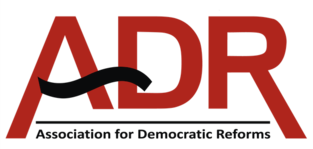The Centre on Monday told the Supreme Court that political parties cannot be brought under the ambit of the Right to Information Act (RTI), saying that it would lead to “malicious intentions” by vested interests and also affect the smooth functioning of parties.
The NDA government in its affidavit filed through the Department of Personnel and Training said “during the process of enactment of the RTI Act, it was never visualized or considered to bring the political parties within the ambit of the said Act. If the political parties are held to be public authorities under the RTI Act, it would hamper their smooth working.
“Further it is apprehended that political rivals might file RTI applications with malicious intentions to the CPIOs (Central Public Information Officers) of the political parties, thereby adversely affecting their political functioning,” the Centre said.
The NDA government’s response comes in the backdrop of a notice issued by the Supreme Court to six national political parties — BJP, Congress, NCP, CPI, CPI(M) and BSP — besides the Election Commission and the Centre on a PIL by NGO Association for Democratic Reforms and RTI Activist Subhash Chandra Agrawal. The plea sought the implementation of an earlier directive of Central Information Commission requiring that the funding details of parties should be subject to RTI queries.
The petitioners had complained that none of the political parties are willing to comply with the transparency law regulator.
According to the Centre, the CIC had made “a very liberal interpretation of Section 2(h) of the RTI Act, leading to an erroneous conclusion that political parties are public authorities under the RTI Act.
“Political parties are not established or constituted by or under the Constitution or by any other law made by Parliament. The political parties are constituted by their registration under the RPA and this cannot be construed as akin to establishment or constitution of a body or institution by an appropriate government, as held by the Central Information Commission,” the Centre added.
According to the affidavit, there are already provisions in the Representation of People Act, 1951, as well as in the Income Tax Act, 1961, which lead to necessary transparency regarding the financial aspects of political parties.
It said under Section 29C of the RPA all political parties shall prepare a report each financial year for receiving any contributions in excess of Rs 20,000, from individuals and organizations other than government companies.
Under Section 75A of the RPA provides for declaration of assets and liabilities by each elected candidate for a House of Parliament.
Further under Section 13A of the IT Act, a political party can claim exemption from tax provided that such political party keeps and maintains such books of accounts and other documents as would enable the assessing officer to properly deduce its income there from.






